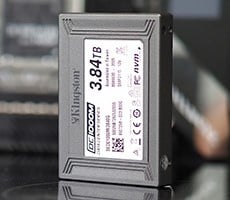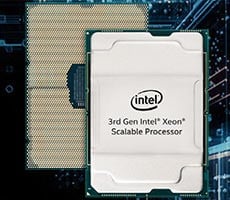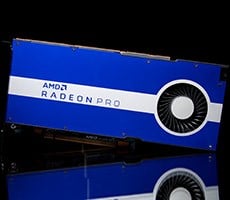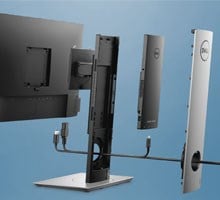Tenda AC15 AC1900 802.11ac Router Review: Affordable AC WiFi Performance
How We Tested and Performance
When we test hardware we typically use a blend of "real world" and synthetic tests, but that can be difficult to pull off with something as unpredictable as wireless networking. There aren't any established benchmarks like 3DMark, per say, and it is impossible to remove variables in the testing environment anywhere outside a laboratory, so as always your mileage may vary. Here in the real world where we test, performance varies according to a variety of factors, including where the router is placed, the size and construction of your dwelling, interference from neighbors, and many more. However, we did our best to illustrate both real world and "best case scenarios" with our testing, and for that we relied on the program NetPerf. This tool allowed us to setup one PC as a server, and one as a client, and test the connection speed between the two computers.
The wireless adapter we used for these tests was a Broadcom BCM4360 which is the onboard part in the Macbook Pro we used for testing (running Windows 10 via Boot Camp). We tested at both 20 feet away with line-of-sight, and 30 feet away with two walls separating the computers. We tested both TCP and UDP packets. To make things actually "real world" we also connected a USB 3.0 hard drive to the routers and tested a file-copy at 20 feet from the router on both 2.4GHz and 5GHz channels. Both of the PCs we used for testing were running Windows 10, and we ran each bandwidth test three times and recorded the average of the three runs. We think these tests provide a fair representation of what one can expect in an urban environment using these routers at medium range. We compared this router to the previous dual band AC routers we've tested, and we removed all the super expensive tri-band routers from the benchmark chart except for the Linksys EA9200 as it costs under $200. It should be noted the Tenda AC15 costs $85 at this time, and is being compared to routers that cost roughly twice as much, if not more.
5GHz Performance


At 30 feet on the 5GHz band we saw it deliver TCP throughput of 514.2Mb/s, which is certainly on the lower end of our benchmark chart, but oddly close to both Linksys routers, which cost twice as much. It's certainly not the fastest AC router at this distance, but overall its speed wasn't too shabby. When accessing the Tenda AC15 on mobile devices it was indistinguishable when generally surfing the Internet from any other router we've used previously.
At 20 feet it performed slightly worse than it did at 30 feet in comparison to the competition. Since 802.11ac uses beamforming it usually performs better at medium range than at close range, and we see that pretty clearly in this chart. This time around it was the slowest AC router we've tested, by a decent margin. If there's a bright side it's that it was still more than twice as fast as the wireless N router we used for testing previously.
In our 2GB file transfer test the AC15 fared quite poorly, and was by far the slowest AC router we've tested so far in this test. Typically the 2GB file transfer takes a little over a minute to finish, but with the AC15 it took over two minutes, which is quite a gap.
2.4GHz Performance



At 20 feet it tied the $300 Asus RT-AC88U in both TCP and UDP throughput, and ranking as the second fastest router we've tested on this band. All three routers at the top of the charts were notably faster than their counterparts, so the Tenda AC15 is in good company on this test.
In our file transfer test the Tenda AC15 once again performed poorly, and is on par with the slowest AC router we've tested. The Tenda router also delivered sluggish results in our 5GHz file transfer so it seems like using it as an inexpensive NAS could be bothersome.

We also measured each router's power output at the outlet using this meter. Given how much this router's marketing touts its eco friendly nature it was not surprising to see it sucking down the least amount of power at both idle and load than any of the previous routers we have tested. We didn't have any power saving features enabled during testing either; the Tenda AC15 simply requires less power than the competition.






